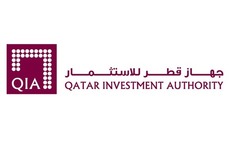
Q&A: Zoyi Capital's Andrew Kuo
Andrew Kuo has spent two decades working on China deals, first as a banker and then as an investor with H&Q Asia Pacific and The Blackstone Group. He formed Zoyi Capital to focus on the China-Taiwan angle
Q: What led to the three of you [Pei-Pei Yu, formerly of Goldman Sachs, Eric Chen, formerly of Temasek Holdings, and Kuo] setting up Zoyi?
A: We saw lots of opportunities in China - no one questions the potential of that market - and we thought we could leverage our respective connections to Taiwan and Hong Kong companies that have been in China for many years, as well as local mainland companies, to identify good investment opportunities. These companies need more help. A lot of them were export-oriented with manufacturing plants in China, but now they recognize China is an important consumption market. Domestic marketing is often the weak point - they don't have the knowledge base to do the branding, for example - so our senior industry professionals and functional experts can bring in the talent required to run these companies. We emphasize the value-add element. At the same time, these are mid-cap companies so the global private equity firms will not focus on supporting them.
Q: And then there is the succession-planning opportunity...
A: When I was a banker with J.P. Morgan over 10 years ago, if you went to see company founders in Taiwan and Hong Kong and asked them if they would consider selling their business, the immediate response was, "You must be kidding." At that age, around 50, these entrepreneurs think they can carry on running the business and then their children are studying overseas so they are trying to build a platform for succession. Now they realize the younger generation is not coming back to take over the business. The founders are in their late 50s and 60s and the competition is getting more intense. The succession-planning issues are obvious..
Q: So how many of your deals are control transactions?
A: We have closed five deals - in one case we own 60% and in another we are the single largest shareholder, Eric is chairman of the company, and we are driving the future strategy and development. But all our deals involve close cooperation with management. There are many reasons why a deal might come and succession could be one reason why we can get control. But beyond that it is a question of who can upgrade a company and add value. Most of our deals come through our personal relationships rather than through third parties. All three of us have made investments in China so we know how to own and operate a business there. When you have a long relationship with someone, and they know your background, they are more comfortable talking to you.
Q: To what extent are you targeting Taiwanese companies?
A: The targets are not only in Taiwan. We invested in a company in Beijing founded by two mainland Chinese but they have a group of managers from Taiwan and one of our partners previously invested in the firm. We invested in Vigor Kobo, a Taiwan-based company that sells pineapple cakes, and it has a shop in Shanghai's Yuyuan Garden and a manufacturing plant in Kunshan in Jiangsu province. It is very difficult to find even a mid-cap company that is only doing business in Taiwan - any business with annual sales of $30-50 million or more has a China element. In some cases, these companies still get the majority of their sales from Taiwan but they have a Greater China dream.
Q: The pan-regional buyout firms have experienced some problems in Taiwan with getting approval for certain deals - particularly privatizations - and exiting businesses. Is this a concern for Zoyi?
A: In any part of the world, there are restrictions on investment in certain industries. Telecom and financial services are more regulated than most sectors and the global buyout firms were very active in these areas in Taiwan. That is why they can't get out easily. We try to avoid these sectors. We focus on consumer-retail, high-end manufacturing with certain technology hurdles, and then services. If you are not in a highly-regulated industry and you have a good local partner, the chances of getting blocked are less. In the same way, take-privates should not be a problem, provided there is proper communication with regulators. I worked on the take-private of Primax Technologies in 2007 when I was at H&Q Asia Pacific. The deal closed in 2008 and then the company re-listed in Taiwan last year.
Q: What do you see as the most attractive exit channels for your portfolio companies?
A: When we talk about a deal we are up front with the owner and management team about the fact we will need to exit at some point. We know how to list companies, but we only want to do public market exits for about 50% of our deals because the markets can be volatile. We also want to demonstrate that trade sales are available. For a lot of global manufacturers, Greater China is still a relatively small portion of their overall asset base. They will continue to make capital investments in the region. If we make an auto parts investment, for example, maybe a big international brand would be a natural buyer for the business. We hope with our international experience and knowledge of capital markets and M&A, we can give our companies more choice over an exit.
Latest News
Asian GPs slow implementation of ESG policies - survey
Asia-based private equity firms are assigning more dedicated resources to environment, social, and governance (ESG) programmes, but policy changes have slowed in the past 12 months, in part due to concerns raised internally and by LPs, according to a...
Singapore fintech start-up LXA gets $10m seed round
New Enterprise Associates (NEA) has led a USD 10m seed round for Singapore’s LXA, a financial technology start-up launched by a former Asia senior executive at The Blackstone Group.
India's InCred announces $60m round, claims unicorn status
Indian non-bank lender InCred Financial Services said it has received INR 5bn (USD 60m) at a valuation of at least USD 1bn from unnamed investors including “a global private equity fund.”
Insight leads $50m round for Australia's Roller
Insight Partners has led a USD 50m round for Australia’s Roller, a venue management software provider specializing in family fun parks.







